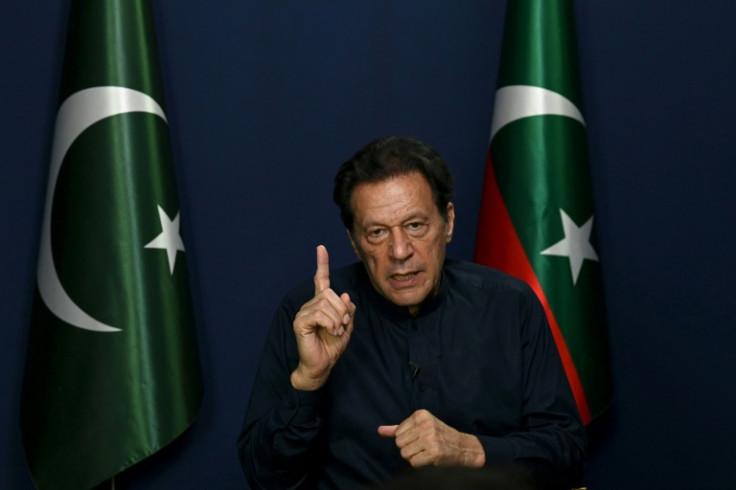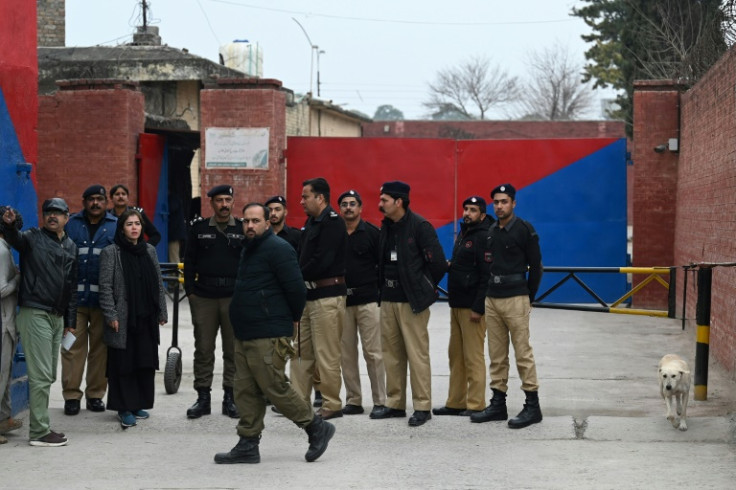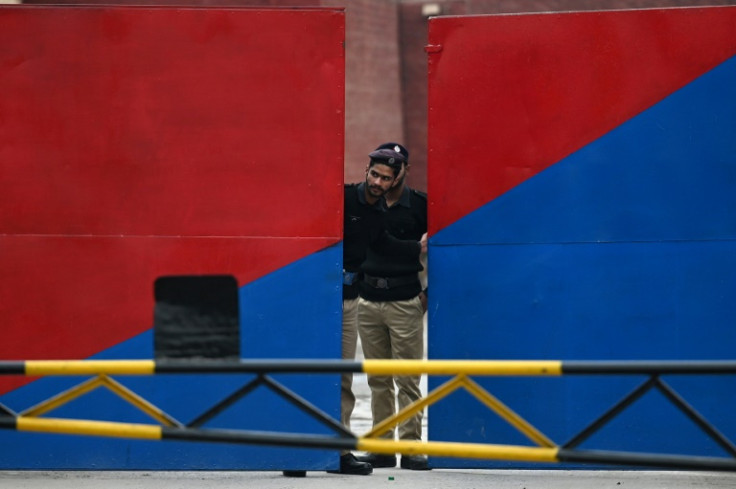Pakistan Ex-PM Imran Khan Sentenced To 10 Years Jail

Former Pakistan prime minister Imran Khan was sentenced Tuesday to 10 years in prison, less than two weeks before the country votes in an election his party has been hamstrung from contesting.
Pakistan goes to the polls next Thursday in an election already marred by allegations of pre-vote rigging, with Khan barred from running and his Pakistan Tehreek-e-Insaf (PTI) party subject to a massive crackdown.
In the run-up to polling day Khan has languished in prison, buried under an avalanche of court cases he says have been triggered to prevent his return to office after a campaign of defiance against Pakistan's powerful military kingmakers.
Khan has already been disqualified from standing in the February 8 poll on the basis of a graft conviction last year.
Tuesday's sentence for leaking classified state documents was handed down inside Adiala jail -- where Khan has been confined for much of the time since his August arrest.
"You have to take revenge for every injustice with your vote on 8 February," said a statement from Khan addressed to the electorate posted on his X profile.
"Tell them that we are not sheep that can be driven with a stick."
The same sentence was given to Shah Mahmood Qureshi, the former PTI vice-chairman who served as foreign minister during Khan's four-year premiership until he was ousted in 2022.
The verdicts and sentences were confirmed by party officials.
"What we witnessed today was a complete mockery of the law from the get-go," said Qureshi's daughter Gauhar Bano Qureshi outside the jail. "When will justice be served in this country?"
PTI lawyers called the trial a travesty, saying they were ousted from the proceedings, denying their leaders fair representation.
"This is unconstitutional, this is against the principles of natural justice," barrister Salman Safdar told AFP.
Local media also reported the convictions and sentences although state TV did not use Khan's name, obeying strict censorship measures that have alarmed rights monitors.
"This is a murder of justice," said Tauseef Ahmed Khan, a human rights activist and political analyst.
"But his popularity among the people will grow in leaps and bounds as his sympathisers will increase because of this gross injustice."
About 127 million Pakistanis are eligible to vote in next week's election, with Khan and PTI at the centre of debate despite being squeezed out of the limelight.
Khan was ousted by a parliamentary no-confidence vote in April 2022, but accused the powerful military establishment -- with whom he ruled in partnership for much of his tenure to that point -- of orchestrating the manoeuvre in a US-backed conspiracy.
He touted diplomatic cables at huge opposition rallies as apparent proof of his claim, prompting his prosecution under the colonial-era Official Secrets Act which resulted in Tuesday's sentence.
He also alleged the top brass plotted an assassination bid which wounded him, but failed to provide any evidence of his claims.
Khan was briefly arrested last May, and Islamabad used the resulting unrest to justify a sweeping crackdown on PTI which has seen many senior leaders jailed, defect or go underground.
PTI has been largely absent from the public sphere in the run-up to elections -- much of their campaigning moved online where it has been marred by state-imposed internet blackouts.
The party has been stripped of its election symbol -- vital for identifying candidates in a country with low literacy rates -- forcing candidates to run as independents.
At the same time, Nawaz Sharif -- head of one of the two dynastic parties that have historically helmed Pakistan -- has returned from self-imposed exile and seen his myriad convictions dissolve in the courts.
Analysts say it is a sign the three-time former prime minister is the favoured candidate of the military's top brass, who have directly ruled Pakistan for roughly half of its history.
According to Pakistan's constitution, elections must be held within 90 days of parliament being dissolved -- which happened five months ago in August.
The election commission blamed the delay on the need to redraw constituency boundaries following a new census in 2023.
But in the interim Pakistan has been ruled by a caretaker government regarded as pliable by the military establishment.


© Copyright AFP 2025. All rights reserved.





















